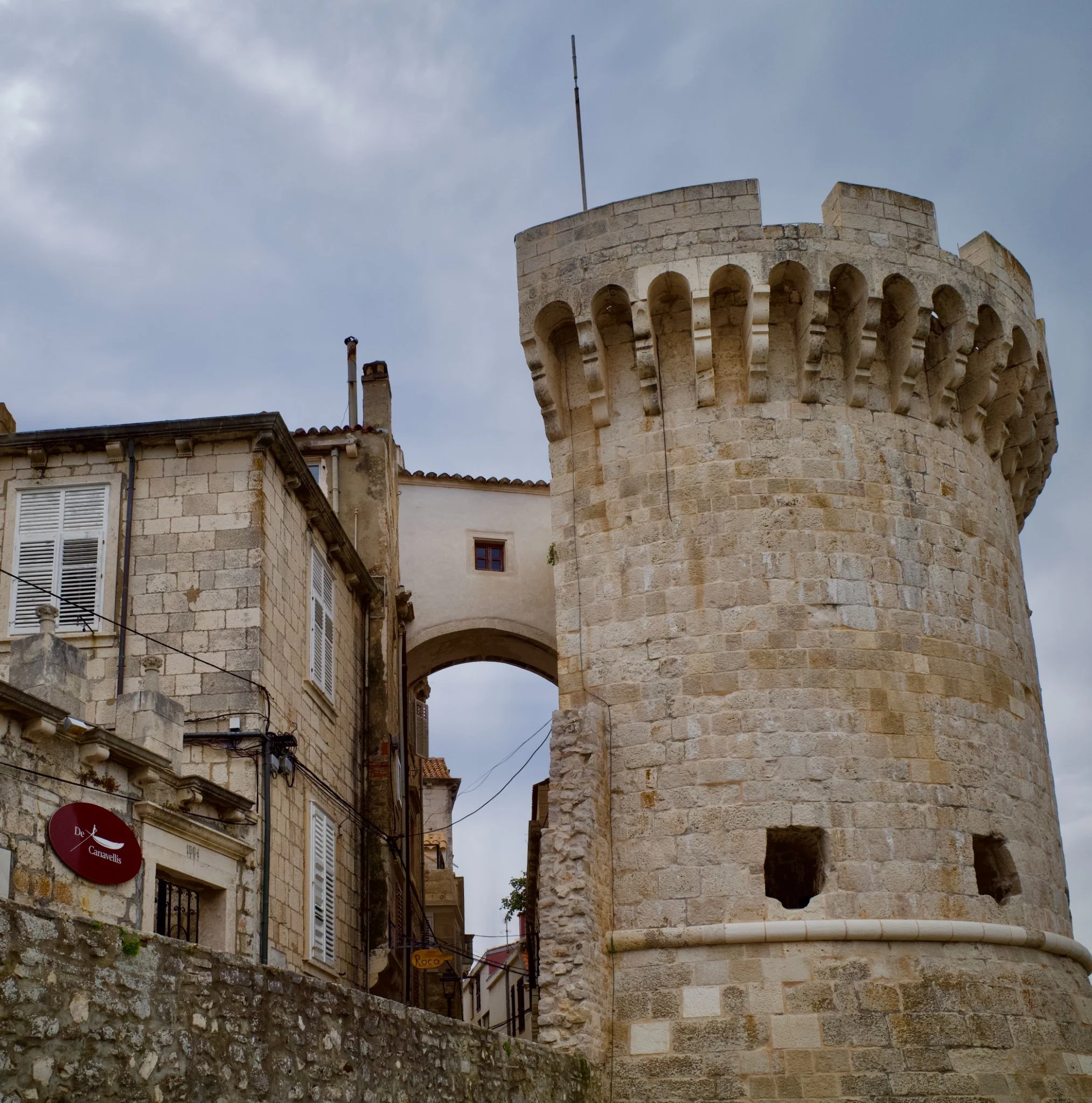Episode 160
Listen to this podcast!
Today we’re learning how to give some commands, politely, or maybe not.
We’ll keep it simple for commands around the house.
Or maybe your new Mother-in-law is telling you to eat!
Now you’ll understand.
Lesson
to command - zapovijedati
Wake up! - probudi se!
Hurry up! - požuri!
Sit! - Sjedni!
Eat! - Jedi!
Shut the door! - Zatvori vrata!
Turn off the light! - Ugasi svjetlo!
Go to sleep! - idi spavati!
Super Slatko Report
In this edition of the Super Slatko Report, DJ Moe talks about the custom and tradition of a Croatian funeral. It’s a sad chapter of life, but now we’ll know how to be respectful to our Croatian family and friends.
In Croatia, funerals are not just about saying goodbye, they’re about weaving faith, family, and community into a ritual that’s centuries old. Burial is still the dominant practice, with funerals closely tied to Roman Catholic traditions (since around 85–90% of Croatians identify as Catholic). That means a priest is almost always present, leading prayers, blessing the body, and offering words. Funerals are both religious ceremony and cultural duty—something attended not just by family but often by whole villages or neighborhoods.
Traditionally, burials are the norm. Croatia’s Catholic heritage leans toward interment in the ground, often in family plots that can be visited on Dušni dan (All Souls’ Day) or other occasions. Cremation is technically acceptable within the Catholic Church today, though it’s less common in Croatia compared to some other European countries. When cremation does occur, ashes are generally kept in an urn at a cemetery, not scattered in the sea or tossed off a mountain at sunset. Major crematoriums can be found in Zagreb and Osijek, but most funerals at a cemetery.
Croatian funerals tend to happen quickly—often within 24 to 48 hours of passing, especially in smaller towns. Once someone passes, their obituary is posted in newspapers and, in classic Croatian fashion, taped to notice boards, lampposts, or even bakery windows. A wake may be held, with family and friends gathering to pray, share memories, and keep vigil. On the day of the funeral, there is usually a procession: the casket is carried, sometimes accompanied by a cross-bearer, from the chapel or church to the gravesite. Attendees walk in solemn lines, often with the sound of church bells tolling. These steps aren’t just practical—they’re symbolic acts of guiding a soul home, showing respect, and ensuring no one departs this world alone.
Traditionally, after the funeral there is a gathering, a meal where family, friends, and neighbors come together. Food is often simple but hearty: soups, stews, roasted meats, bread, and wine. The atmosphere? Mixed. It’s undeniably somber, but Croatians also believe in remembering the good, so you may hear laughter between tears as stories are swapped around. Music is not usually part of the immediate funeral meal, but conversation and companionship serve the same purpose. If you’re attending, it’s polite to offer your help, though most often guests are encouraged simply to be present. A kind word, a quiet toast, or even doing the dishes afterward can mean more than flowers.
Speaking of flowers, wreaths and floral arrangements are traditional, often decorated with ribbons bearing the name of the person who brought them. Chrysanthemums are especially common, as they’re associated with mourning in Croatia. Candles, especially the red votive kind, are also traditional gifts, left at the grave after the burial. Whatever you bring, keep it solemn, understated, and respectful.
Like many cultures, Croatia has its own rituals that outsiders may not expect. Mirrors in the home of the deceased are sometimes covered to prevent the soul from being trapped. Bells may toll a certain number of times to signal whether the deceased was a man, woman, or child. There is also a strong emphasis on everyone turning out or showing up—if you live in a village and skip a funeral without good reason, expect to hear from somebody about it. On All Saints’ and All Souls’ Days, cemeteries glow with thousands of candles, a collective act of remembrance.
Traditional Croatian funerals are a blend Catholic rituals and local traditions. You’ll find processions, wakes, flowers, and communal meals. While burial is the standard, cremation is slowly finding its place. For outsiders, the most important things to remember are respect, presence, and simplicity. If you only take three notes with you: bring flowers, follow the family’s lead, and understand that funerals are less about closure and more about continuity—connecting the living, the departed, and the community in one shared act of remembering the person you lost.
And thats it for the Super Slatko Report.






